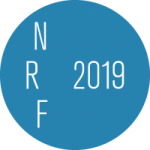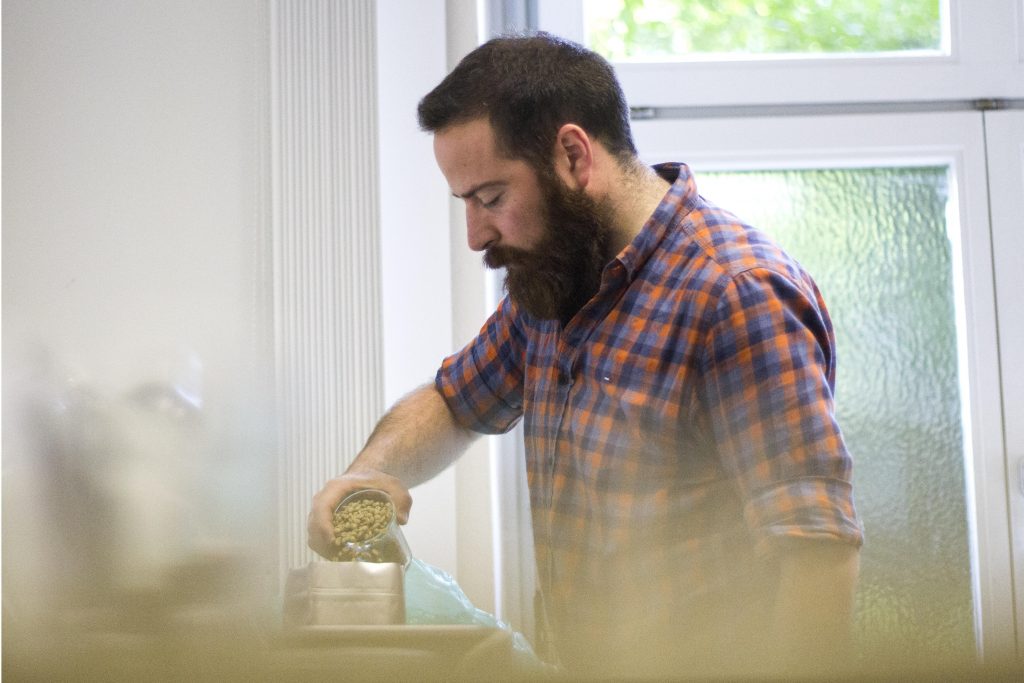Speakers
2019
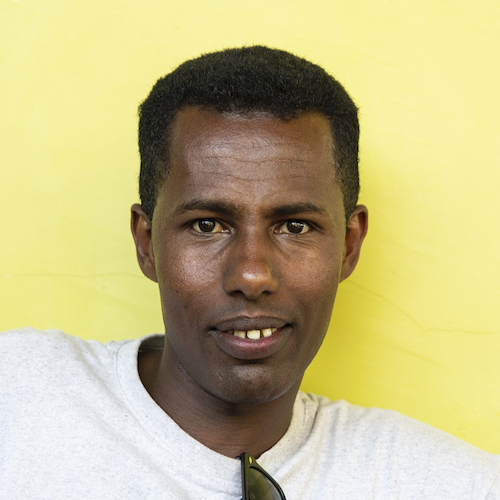
Fufa Eticha studied Economics in Ethiopia, followed by a Master of Coffee Science and Economics at IllyCafe in Italy. He has been in the coffee industry for more than seven years, working with different projects in agronomy & sustainability, marketing & traceability, production, processing, and helping farmers access finance. Recently Fufa joined the Belco team in Ethiopia, specifically working on an agroforestry project that began 10 years ago.
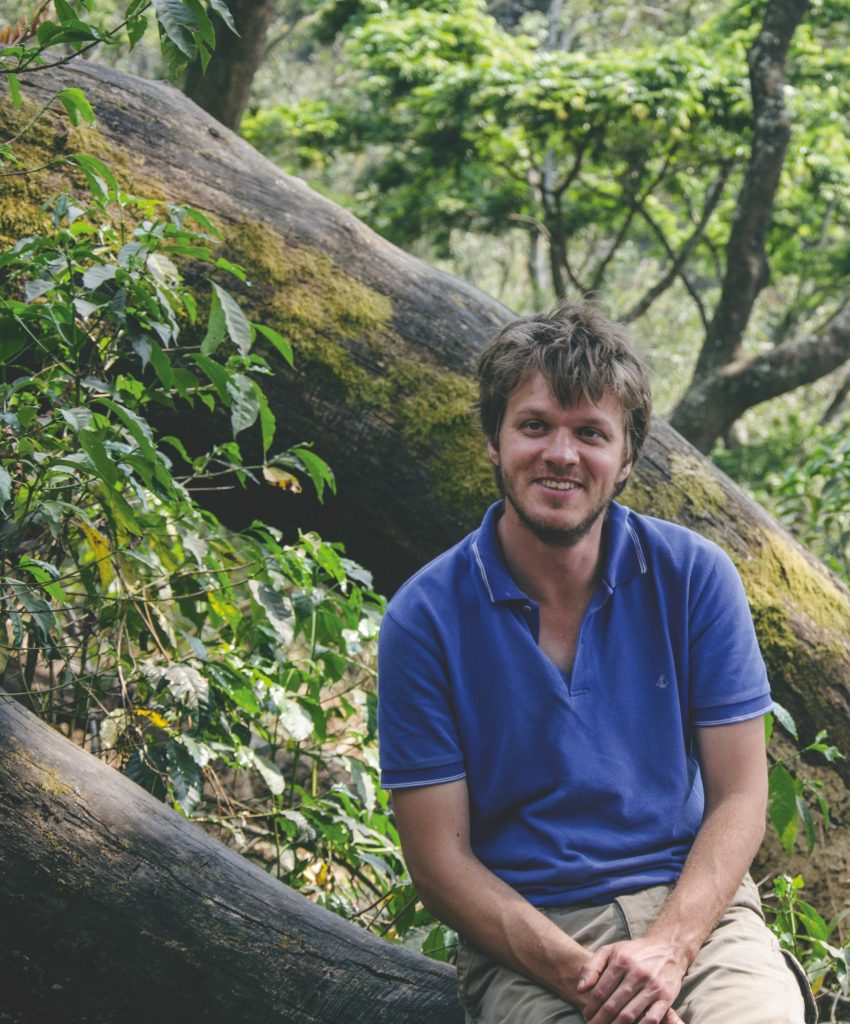
Jacques Chambrillon arrived in Ethiopia in 2005 as a student to complete field work in Ambo (West Shoa), Gimbi (West Wallagga) and Anfilloo (Kelem Wallagga). In 2007, he became a coffee merchant and purchased his first coffees from Anfilloo and Gidaamii (Ethiopia). The idea for his company was simple: provide traceable coffee from an unknown region, improve coffee quality, and promote the natural process (at this time, most specialty buyers were only interested in washed coffee).
In 2011, Jacques started a micro-roastery and continued buying coffee from Ethiopia and in 2014, he joined Belco and together opened an office in Addis Ababa. Today he works with a full team consisting of a Q-grade cupper, two fields engineers, and one researcher.
Fufa and Jacques will co-present To Understand and to Promote Ethiopian Agroforestry in Coffee Farm: a local approach of sourcing. It is about how agroforestry can be used to increase coffee quality.
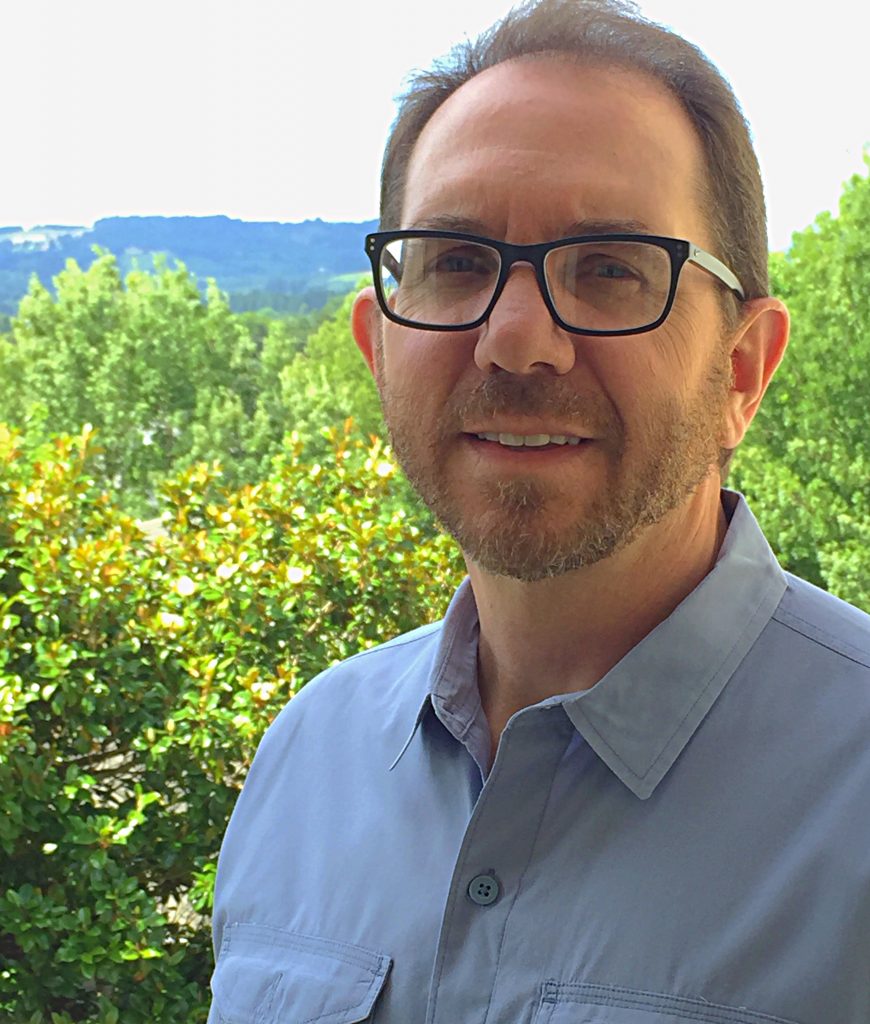
Greg Meenahan is the Partnership Director for World Coffee Research and is coordinating the industry’s global, financial support for this pre-competitive agricultural research and development effort. His communications and fundraising career has been focused on removing barriers to human potential and providing the tools people need to achieve economic stability. Because some of the most vulnerable people on the planet grow one of the most vulnerable crops on the planet, it became clear that agricultural research and development could lift millions out of poverty and could prevent many from falling into it.
In his keynote presentation, Boosting Farm Profitability at a Time of Record Low Prices, Greg talks about global coffee prices, which are at their lowest levels in more than a decade, and how this endangers coffee producers and entire origins. At current price and productivity levels, many coffee grower incomes do not meet their basic needs.
While most attention has been focused on price mechanisms and premiums, the best lever for improving farm profitability is to increase yields, quality and farming profitability. In this lecture you will learn how F1 hybrids, a new class of coffee variety, and globally oriented profitability research will empower producers with the tools they need to be resilient in down markets, and highly profitable in up markets.
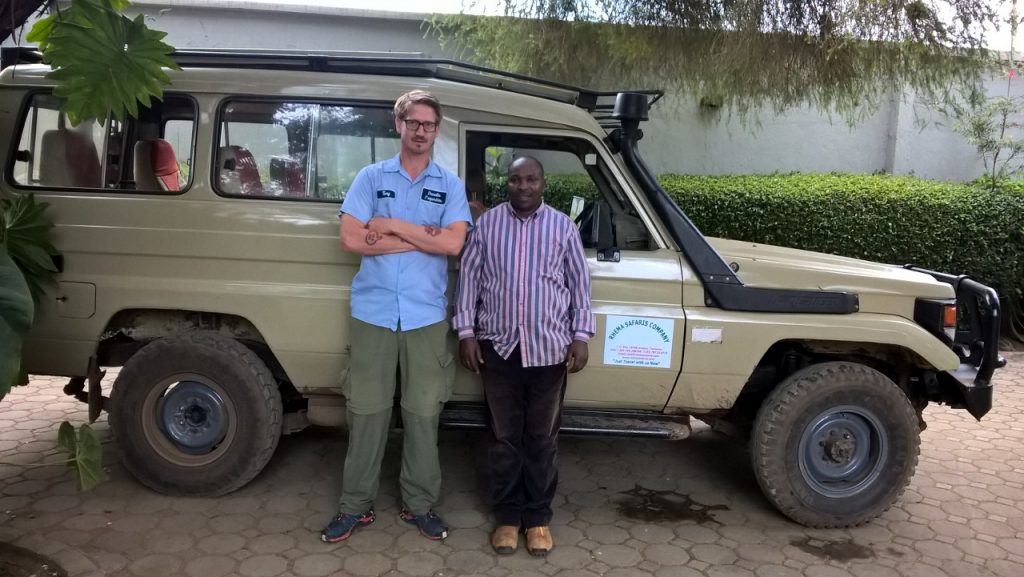
Anders (L) with Mr. Mark, his driver during fieldwork in Tanzania in 2017
Dr. Anders Nielsen is a researcher at the Centre for Ecological and Evolutionary Synthesis at the Department of Biosciences at the University of Oslo. For many years his research has centred on questions related to plant-pollinator interactions, i.e. how insects contribute to plant reproduction. Although he started out working mostly in wild ecosystems he has, over the last years, also done research on crop pollination, both in Norway and abroad. He finds the interaction between agriculture and biodiversity particularly intriguing as pollination, an ecosystem service, might benefit production and thereby give strong arguments for biodiversity conservation in agricultural settings. Climate change has the potential to affect plant-pollinator interactions in subtle ways both in natural and agricultural settings. Coffee is a valuable commodity especially in third world countries where it contributes to local economies and can have huge impacts on the livelihood of local people. Since bees pollinate coffee, local biodiversity can also contribute to improving yields. Anders’ research is about better understanding what factors affect coffee pollination, what agricultural practices that might harm or benefit pollinator communities, and to what extent pollination is limiting coffee yields in different areas.
His Nordic Roaster Forum presentation is Coffee Pollination – How Biodiversity Might Benefit Coffee Yields:
Plant-pollinator interactions are ubiquitous in nature, as almost 90% of all flowering plants to some degree benefit from pollinators. Over the last years the positive effects of pollinators also to a huge variety of crops has also become evident. Coffee is an insect pollinated plant where Coffea canephora (Robusta) is 100% dependent on pollination for fruit production, while studies have shown that Coffea arabica (Highland coffee) have a yield decrease of 15% to 50% when bees are prevented from visiting their flowers. Through my work on crop pollination in Tanzania, I have learned that there is a strong focus on irrigation, fertilizer application and pesticide use among farmers, to improve yields. However, we have found that the potential for increasing yields in watermelon does not lay in any of these agricultural inputs, but solely on better pollination services. I will argue that this might also be the case in coffee production systems, and that measures to sustain local bee diversity might not only benefit biodiversity conservation, but also coffee production itself. Climate change might have strong effects on plant-pollinator interactions and I will discuss how this might affect coffee pollination in particular.
Francisco Velazquez has been team manager of a bioanalytics and spectroscopy unit within the group of Prof. Dr. Peter Hildebrandt at the Technische Universiät Berlin. He is also an experienced bio-data and machine learning scientist. For more than three years he has been working in understanding structure and degradation mechanisms in coffee and coffee by-products. As co-founder of coma, he has developed the scientific and technological approach for preventing aroma and flavor aging as well as building up and foster the spinoffs international network (specialty-coffee farmers, scientists, exporters, importers, traders, roasters and coffee shops).
Even when stored under adequate conditions, aging of green coffee results in the decline of its original quality. For producers, exporters, importers and traders of specialty coffee this can represent significant losses, given the close price-cupping score interrelation. General knowledge within the coffee community indicates that the rate at which this negative progression occurs differs among varieties and processing methods. To explore and address this, a spin-off from the TU Berlin called coffee, metrics & analytics (coma) developed a novel pressure treatment to preserve flavor and aromatic compounds over longer periods. In 2018 coma kicked off an experiment comparing the rate of decline in the cupping score of samples from two lots: a Tanzanian fully washed Kent variety and an Ethiopian Heirloom natural. Coma conducts the experiment in collaboration with two specialty roasteries in Germany and one specialty trader in Norway. For each variety, half of the samples were subjected to the new treatment while half remained unprocessed. All samples are stored under business-as-usual conditions at the roasters’ and sourcer’s premises, and are cupped at regular intervals to evaluate the evolution of cupping score and biophysical components. This lecture & cupping will introduce the new pressure treatment and present preliminary experiment results.
Francisco’s presentation is titled Interrupting the Biological Process of Aging in Green Coffee.
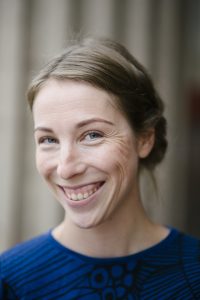
Milda Rosenberg is a researcher at the University of Oslo, studying climate change adaptation in coffee. People with a vision others call unrealistic fascinate Milda, which is why her research follows them through the process of turning their vision into reality against all odds. Milda approaches climate change as one of the many issues stakeholders deal with, and facilitates a change process that incorporates sustainability as one of the key agendas. She thrives on harnessing the potential of human capacity to change. The goal is to make change an efficient and creative process.
The title of Milda’s presentation is What is my role in climate change adaptation in coffee? More info to come.
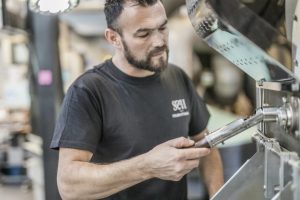
Simo Kristidhi has been a roaster at Solberg & Hansen since 2004, taking on the position of Head Roaster in 2008. During his 16 years of roasting at S&H, Simo says he has had the opportunity to work with some of the worlds greatest coffee professionals. Something that motivated him to enter the World Coffee Roasting Challenge in Vienna in 2012, which he won. The WCRC was a precursor to the World Roasting Championship.
After this competition, Simo was determined to organise the first ever Norwegian Roasting Championship to both highlight the roasting profession and showcase the science behind it. Six years on, the competition has 25 participating countries, each winner becoming an ambassador for the coffee roasting profession. In Simo’s opinion, interest in roasting, and the level of skill behind it has never been as high as it is now, in part due to the attention roasters receive through competition.
Simo is the current champion of the Norwegian Roasting Championship—a title he has held since 2017. In addition to his top-place win in Vienna in 2012, he placed 8th and 6th at the World Roasting Championships in 2017 & 2018, respectively.
His presentation at Nordic Roaster Forum is about his experiences as a roaster competitor, Thoughts and Strategies Prior to Roasting Competitions. To Simo, participating in competitions is many things: a great way for roasters to calibrate themselves and sharpen their skills, a means to gain more roasting experience and knowledge, as well as create great (lifelong) friendships amongst peers.
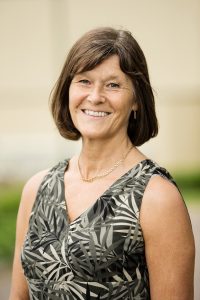
Eva Eriksson has worked for the Swedish coffee roaster Löfbergs for more than 30 years. She is now the Quality and Sustainability Director, a position where she oversees both taste and quality, and takes responsibility for the people and environments where Löfbergs does its sourcing and production.
During her years at Löfbergs, the company has become one of the world’s largest suppliers of organic and Fairtrade labelled coffee and has invited more than 75,000 small-scale coffee farmers to its development projects. Back home, Löfbergs has constantly reduced its climate impact despite increasing its production and it has also been a frontrunner within the area of packaging waste management. Löfbergs was the first coffee business in Europe to remove aluminium from its packaging 25 years ago and has now started to phase out fossil plastics, replacing it with plastic from renewable sources.
Eva is still cupping coffee daily at Löfbergs as she has always been doing over the years. She has cupped approximately 500,000 cups in total and still enjoys every sip.
The working title for her coming lecture is Responsibility from bean to cup. More info to come…
2018
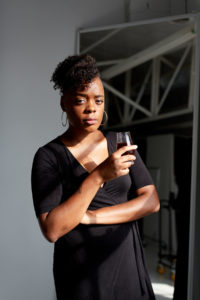
A challenge she feels is affecting coffee businesses worldwide is a lack of accessibility to education. There’s a huge gatekeeping problem of information for a lot of people: people of marginalized identities, people who don’t speak English, baristas in producing countries, and the producers themselves. On the note of those in producing countries, she feels strongly that if we can increase this accessibility of information to them, it’ll help aid in producing better quality coffee.
Tamper Tantrum: NYC — Laying The Groundwork for Diversity
Specialty Coffee Association — Changing Power Structures (“The Intersectionality Panel”)
I Brew My Own Coffee Podcast — Intersectionality Recap
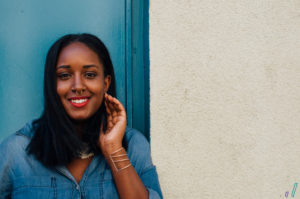
Tymika Lawrence has worked in coffee since late 2010, starting as a barista who didn’t know very much about coffee (and pretty much just wanted a job with better hours than bartending). She was able to take courses at Counter Culture Coffee in her first month at that cafe, and that ignited in her a serious love of coffee. Over the next 6 years she would go on to work for Stumptown Coffee Roasters, and Counter Cutlure Coffee in New York City, where she learned and honed her skills in resource management, training, and education. Tymika currently works in sales for Genuine Origin, an importer that works with roasters and producers outside of the traditional supply chain model.
In Tymika’s words, her NRF presentation will discuss how, “As an agricultural industry, sustainability is one of the is one of the primary issues facing coffee–and rightfully so. Oftentimes when we talk about sustainability, we’re referring to land viability, and environmental impact. Truthfully, all resources have their constraints, and can be exhausted without careful and thoughtful planning. Why then, do we not extend this thinking to all of the inputs that make up our industry?
We understand that different varieties and origins have something different, and necessary to contribute to the diversification of our offerings. We endeavour to showcase different qualities, instead of trying to make those coffees fill niches that don’t make sense for their profiles. Somehow, we have yet to approach one of our more precious resources with the flexibility and understanding we do coffee, and it shows. [My] presentation will centre on the conservation of the human resource and encourage roasters to widen their definition of what sustainability means, and its applications in their business this side of the supply chain.”
Check out some of Tymika’s previous talks:
SCA Panel: Changing Power Structures
Boss Barista Part 1: In this episode she addresses creating inclusive workplaces.
Boss Barista Part 2: In this episode she addresses racial inequality in the United States.
The Barista Monologues: Discussing the Experiences of Women in Coffee: This was a panel for a recurring coffee event in NYC, called “This Coffee Thing”.

Gilberto Baroana is a fourth-generation coffee farmer from El Salvador, who also works as a green coffee buyer, miller and exporter.
Amongst his many activities and achievements working throughout specialty coffee, Gilberto’s farm’s lots have placed at Cup of Excellence 15 times, he has designed and implemented micromills throughout Central America, and he is both a board member and distributor of Grain Pro in El Salvador.
In Gilberto’s upcoming presentation, “Improving coffee quality through different coffee processing methods,” he will talk about the past eight years of his experiments with different processing methods (honeys, washed, and naturals), and how they have improved his coffees’ cup quality.
This year, his lots won five of COE El Salvador’s 2018 places. One of them paced in the top-10 and was one of his experimental processing lots.

Fabiana Carvalho is a Brazilian neuroscientist who received her MSc in Biochemistry (Federal University of Minas Gerais, Brazil) and her PhD in Psychobiology (University of Sao Paulo, Brazil, and University of Glasgow, UK) investigating neural processes of memory, sensation, and perception. She has also worked as a postdoctoral researcher at the King’s College London, UK studying the interplay between genes and environment in shaping cognition and emotion.
She is currently completing her second postdoc at the University of Sao Paulo, Brazil. Her research project is focused on understanding perception as an anticipatory and constructive process instead of a mere passive and reactive process. Last year, ‘specialty coffee’ became an object of study of her project in the context of multisensory flavour perception. She is interested in scrutinizing the influence of extrinsic factors (that is, ambiance factors) on the expectation and perception of flavour in specialty coffee. This research project has been conducted under the supervision of Prof Charles Spence at University of Oxford, UK.
Her presentation in the NRF will introduce the topic of multisensory flavour perception, show the well-known associations between senses (cross-modality) and how it affects perception of flavour in food and beverages, and present her findings on specialty coffee.
Check out Fabiana’s publications:
— The shape of the cup influences aroma, taste, and hedonic judgements of specialty coffee. Food Quality and Preference, 68, Sep 2018, 315-321 (available online 5 Apr 2018: https://www.sciencedirect.com/
— The Coffee Sensorium By Fabiana Carvalho: A Revolution Of Flavor Perception (http://sprudge.com/the-
— List of publications: https://scholar.google.com.br/
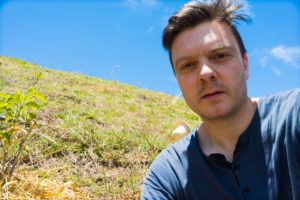
Tim Wendelboe runs his own roastery and espresso bar in Oslo, Norway where he imports, roasts and serves high quality coffees.
Apart from winning six Nordic Roaster competitions with his team, he was the 2004 World Barista Champion and the 2005 World Cup Tasting Champion. Tim has also published several books on coffee. Tim spends a lot of time working together with the producers he buys coffee from in order to improve the quality of their coffees.
He is also working on his own coffee farm, Finca el Suelo, in Colombia where he uses his knowledge in soil biology to grow coffee free from pesticides and mineral fertilizers. His NRF 2018 presentation will be an update on how Finca el Suelo has developed over the past year since NRF 2017.
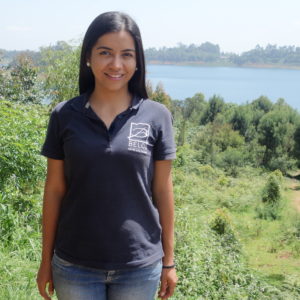
Marjorie Canjura is a coffee professional born and raised in El Salvador. She began working in coffee seven years ago with a project that introduced Salvadorian farmers to the production of honey and natural coffees as alternative processing methods: a first in her country. Since then, she has been involved in the specialty coffee industry as a quality advisor, assisting farmers, millers and cooperatives to improve quality throughout all the steps within the coffee production and processing chains.
Majorie currently works at Belco, a green coffee importing company based in France, where she oversees quality at origin. She believes there are many production challenges that can be approached in better ways, through innovation, integration and transparency applications. Aside from assisting coffee suppliers in Latin America, the Caribbean and Africa, Marjorie also works as a technical advisor for female coffee farmers through a program in Nicaragua. Soon she will also teach a coffee module at a university in Honduras.
Her NRF 2018 presentation, “The Power of Innovation at Origin” is based on her experiences in combining green coffee sourcing and technical advising to Belco’s coffee suppliers at origin.
In Marjorie’s words, “Coffee consuming countries are always at the forefront of innovation, but why is innovation still a challenge almost impossible to overcome at origin? The conception of considering people from producing countries as simple farmers and not as partners or colleagues can give us a clue. Terms such as sustainability and transparency can never take place in this industry if the lead actors in charge of creating so precious beans do not open their minds and exploit their potential and if such efforts are not fairly appreciated by the final buyers.”
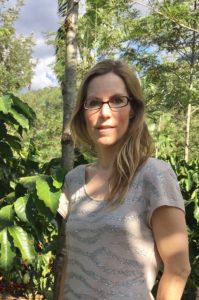
Gail Hochachka has spent 17 years working with non-profit organizations in sustainable development in Africa, Latin America and North America on diverse themes such as rainforest conservation, community development, women’s empowerment, sustainability leadership, global value chains, and climate resilience.
She is currently is a PhD candidate at the University of Olso, Norway, working in the AdaptationCONNECTS project (Combining Old and New Knoweldge to Enable Conscious Transformation) to develop new understandings of whether and how different types of transformations can contribute to successful adaptation to climate change. She is carrying out this research in the coffee-producing communities of Guatemala.
In her upcoming NRF presentation: “The orchestra plays as the Titanic sinks: How a technical approach to climate change adaptation is necessary but insufficient” Gail will talk about technical adaptation to climate change as having been referred to as “necessary but insufficient”. To assume a technical solution is possible belies the full complexity of the issue. In this talk, Gail will take a deep look at this, with some preliminary research from the coffee growing regions of Guatemala as an example.
Both parts of the above statement are important. “Necessary” refers to the fact that every adaptation counts. As communities grasp a fragment of the full complexity of the climate change issue and seek towards addressing it they often do so with technical adaptations—techniques to respond to roya fungus, to address water shortages, to protect against winds, to plant more robust varieties. She suggests that each and every one of such technical efforts contributes to the whole; those community-based versions of adaptation are simply necessary, not only to survive the current set of impacts on coffee farms, but because they make sense to the local farmers, such technical adaptations also help to sustain buy-in, commitment, and follow through on adaptive actions. In other instances, where experts ‘prescribe’ what should be done, it has resulted in less local follow through and were much less effective.
The last part of the statement, “but insufficient,” refers to the moral question that this raises: How can it be that individuals and communities are encouraged to adapt to and under unjust, unsustainable systems? Infinite technical adaptations can be endlessly wrought at a local level, while never addressing the overarching systems creating the problem of climate change in the first place. How might a useful balance of ‘necessary’ and ‘but insufficient’ be found, that could be brought to bear in adaptation? What role might a global value chain play in this larger efforts towards transformation? And, could a skillful collaboration between roasters and other actors in a value chain support this two-tiered approach to adaptation?
In summary, while often the metaphor of the orchestra playing on the deck of the Titanic is given to get people to look at the bigger picture of the issue at hand; here she is suggesting we need both—some beautiful music that attends to our immediate state of vulnerability, as well as a bigger-picture view of the whole of transformation that is needed.
Check out Gail’s work:
Integral Transformation of Value Chains: One Sky’s Integral Leadership Program in the Brazil Nut Value Chain in Peru and Bolivia: https://
Climate Resilience Photo Journal: Climate Change Adaptation and Human Development: https://
Integral Adaptation to Climate Change: https://
Developing Sustainability, Developing the Self – An Integral Approach to International and Community Development: https://
Video: Sex, God, and Integral International Development: https://www.youtube.com/watch?
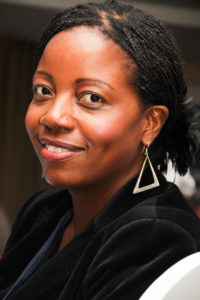
Margaret Fundira became Product Manager: Coffee & Cocoa at Lallemand in August 2017. Previously she served as Director of Biotechnologies at Anchor Yeast (a subsidiary of Lallemand). Margaret has a Masters in both Microbiology and in Business Administration. Her knowledge in microbiology has seen her successfully execute different roles in the group for the past 14.5 years. These range from Technical Sales Management, Business Development and the General Management of the Biotechnologies business. Margaret brings a wealth of experience to the coffee business, supporting and adding value to the coffee production process.
Her NRF 2018 presentation is titled “Coffee fermentation: a small step in the process, great for coffee quality” where she will explore the following:
Fermentation in coffee is often referred to some biochemical reactions leading to the removal of the mucilage from the bean. But in fact lots of microorganisms are present at this step of the coffee process and can be involved for good or for bad… Indeed indigenous flora can be diverse and some microorganisms can play an important role on the demucilagination but also on the quality of the final product. The first part of this lecture will present an over view of the microorganisms potentially present in coffee, what is known about them in terms of metabolism and growth conditions, based on their implication in other fermented products. In a second part we will illustrate through a wide experience in other fields the interest of using selected microorganisms for a better control of fermentation through the limitation of the growth of undesirable indigenous microorganisms and for a better sensory quality. Finally, in a third part, the link with the coffee process will be made. We will share our experience with the application of selected yeast in Arabica and Robusta coffee processing where a noticeable positive impact in terms of biocontrol is foreseen and a positive contribution to the sensory quality of the final product is confirmed.
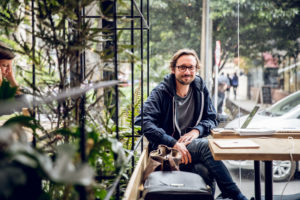
Tyler Youngblood and his partners started Azahar Coffee, a Colombian exporter that also roasts and serves specialty coffee at its own cafés in Bogotá, while on a road trip through South America in 2010. They currently work with some of the world’s leading specialty roasters and importers under a model of transparency that takes quality and farmers’ cost of production into account rather than the “C” price.
In addition to letting us know how he got involved in coffee in Colombia in the first place and what it’s like to export from there under a transparent model, Tyler’s presentation, “Why Transparency Is Good For Business: A Sustainable Coffee Buyer’s Guide” is about creating a coffee buyer’s guide for professionals interested in paying sustainable prices. As we all know that the future of small-scale coffee farming is in jeopardy, his company is making this a priority. By understanding farmers’ costs of production on a regional basis and placing them into the context of their local economies, he believes that we can collaboratively produce minimum prices for our industry’s companies to respect — in the process inviting consumers to support the ones that do.
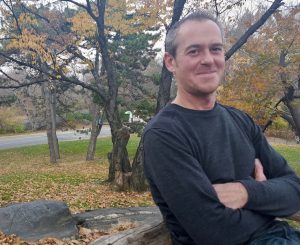
Chris Hallien has worked in specialty coffee since 2000. His experience includes green buying through to roasting and detailed research and analytics in areas like chemical, sensory & quality analysis. Chris has held roastery production roles in companies like Intelligentsia Coffee and product development roles in companies like Mars and Kraft. His work at origin includes Latin America & East Africa with a focus on farm-level practices. As both a C & Q grader Chris holds many coffee qualifications and is also a certified food scientist.
As product manager for Roast and Lab Chris focuses on research, development & new product initiatives at Cropster.
In his coming NRF presentation “More or Less: Balancing Effort and Elegance in Coffee Roasting Operations”, Chris will explore various concepts for improving workflows and efficiencies that can support sustainable growth in coffee companies of all types and sizes.
Chris has worked with several companies to help reduce operational complexity. This has resulted in improved transparency throughout the supply chain, enriched relationships with suppliers and customers, provided more consistent quality in finished products and critically, reduced both waste and energy consumption. While companies have differing opinions and priorities on these issues, all are relevant to a company’s health and image. Taking an approach that is all encompassing–such as the ones Chris advises on–allows each company to the reap benefits in all areas of their business and creates a better work environment.
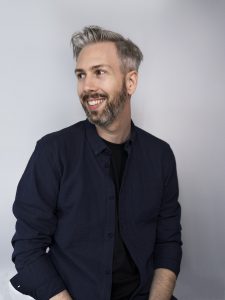
Geoff Woodley has been working in coffee for over 10 years. Currently working as the Marketing Manager for IKAWA, Geoff was previously Brand and Coffee Director at Detour Coffee in Canada. In his time in the industry he has spent most of it buying and roasting coffee, and creating ways to connect it with people. Through his years in coffee he’s been lucky enough to spend a good amount of time in origin countries, from judging Cup of Excellence competitions to purchasing trips, and roast for a number of special occasions. All of which prepared him for his current role very well.
Geoff’s workshop will explore sample evaluation and how coffee professionals actually go about it. Sample evaluation is a critical step for business–both for those that are producing and selling coffee, and for those that are purchasing. Often underestimated, sample evaluation is a fascinating slice in time when a coffee is most vulnerable, and often misjudged. Like the Olympics or Iron Chef (or Great British Bake Off), the circumstances on the day can make or break it’s reputation. However, the process should be fair, the refs unbiased, and each coffee should have an equal shot at showing what it’s all about.
The session will be interactive, and will also contribute to a global project looking at how people approach their sample evaluation, with the goal to understand and effectively improve it, and highlight the most effective approaches.
